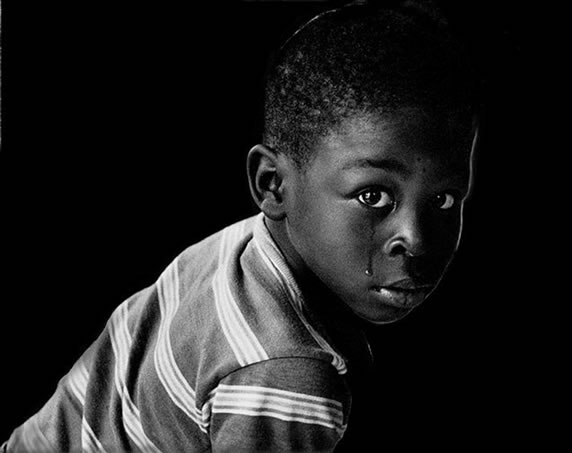September, 2021 African Proverb of the MonthThe person who doesn’t know how to groan has not yet been in pain. Gweno (Tanzania) Proverb
 |
Mundu utakuiwa ndamanya woo wa kukwiw’a. (Gweno) Asiyejua kugumia bado hajakuwa na uchungu. (Swahili) Celui qui ne sait pas gémir n’a jamais été en douleur. (French) The person who doesn’t know how to groan has not yet been in pain. (English) |
Gweno (Tanzania) Proverb
Background, Meaning, And Everyday Use
The Gweno language is also referred to as Asu, which is a Bantu language spoken in the North Pare Mountains, Mwanga district of Kilimanjaro Region of Tanzania. The Gweno language has over 50% lexical similarity to the Chagga and Taita languages and has alternative names: Ghonu, Kighonu, Kigweno. The indigenous Gweno language has been listed on the African Ethnologue as an endangered language that is currently spoken mainly by the elderly, with the younger generation preferring to speak Asu and Swahili, hence minimizing the dialect of the indigenous language. It has not been actively passed over to the younger generation since the 1970s and is threatened by extinction.
There are different theories of the origin of the name Gweno/Ugweno stating that it was derived from the Taita ethnic groups of Kenya during their migration to the Pare Mountains during the tribal wars. Another theory states that before settling in the region, tribepeoples were sent to survey the area and said that the rivers produced thunder when flowing hence the name Ugweno was created. The people are farmers growing coffee, bananas, maize, and rice in the swampy plains. Before the introduction of Christianity, they practiced a diverse range of faiths, believed in the ancestral spirits, and had shrines that were in the high forest surrounding the Mount Kilimanjaro. Some of the people still engage in these traditional religious practices.
Proverbs were and are still used daily to advise, warn and educate the people in the community. They are used during child naming, rights of passage, funerals, weddings, and dowry payment ceremonies. Gweno elders believed that a true leader should always take responsibility for the people to help them achieve their goals. The proverb The person who doesn’t know how to groan has not yet been in pain (Mundu utakuiwa ndamanya woo wa kukwiw’a) was created to be used to warn members of the Gweno community that anyone who does not take responsibility as a family provider, cannot understand the weight of it and will not respect its role. In the traditional African society, the kinship and extended family structures created provision constraints because of the large number of its members. Despite this, they appreciated being leaders and were respected and considered masculine, courageous, and reliable for taking up the role. Those who evaded this responsibility were despised by the community.
Biblical Parallels
1 Peter 2:21: “For to this you have been called, because Christ also suffered for you, leaving you an example, so that you might follow in his steps.”
Luke 9:11-13: “Now the day began to wear away, and the twelve came and said to him, “Send the crowd away to go into the surrounding villages and countryside to find lodging and get provisions, for we are here in a desolate place.” But he said to them, “You give them something to eat.” They said, “We have no more than five loaves and two fish—unless we are to go and buy food for all these people.”
Contemporary Use And Religion Application
 Having responsible people around us generates confidence and security. Every human being needs to fulfill their physiological needs, belong, love and be loved, have self-esteem, socialize to achieve self-actualization. When fathers demonstrate they can provide protection and provision to the family, they are viewed as dependable and responsible by the community. Today there is a transformation of the African marriage and family organizations, away from kinship and extended families, toward nuclear households which have reduced significantly the number of dependents. Both parents today take responsibility to provide the spiritual, intellectual, physical, and emotional needs of the family. It is not a one-person role.
Having responsible people around us generates confidence and security. Every human being needs to fulfill their physiological needs, belong, love and be loved, have self-esteem, socialize to achieve self-actualization. When fathers demonstrate they can provide protection and provision to the family, they are viewed as dependable and responsible by the community. Today there is a transformation of the African marriage and family organizations, away from kinship and extended families, toward nuclear households which have reduced significantly the number of dependents. Both parents today take responsibility to provide the spiritual, intellectual, physical, and emotional needs of the family. It is not a one-person role.
Pope Francis once explained the deeper meaning of the miracle of the multiplication of the fishes and loaves (Matthew 14:13-21), saying it was a gesture reflecting God’s great care for God’s people. Taking responsibility for one another and not ignoring others; not letting others fend for themselves. Selflessness should be an act of commitment towards doing good for humanity. God expects the church leaders, pastors, and priests to be supported by the congregations to meet their basic needs since they are in non-profit making establishments. They make sacrifices and are committed to serving the church and its people without expecting rewards. Philippians 4:18: “I have received full payment, and more. I am well supplied, having received from Epaphroditus the gifts you sent, a fragrant offering, a sacrifice acceptable and pleasing to God.” … They are a sweet-smelling sacrifice that is acceptable and pleasing to God.” These gifts involve food, clothing, supplies or personal items meant to assist them in their missionary work. Writing instruments, ink, and other tools would have been especially useful to Paul at this point in his ministry. Just as the Old Testament offerings were considered acceptable sacrifices that pleased God, the Philippians’ gifts to Paul provided God the same satisfaction.
This Gweno proverb applies to the context of our Covid-19 pandemic today.
Texts and photos by:
Eli@s Bushiri Élie
Nairobi, Kenya
+254 7414 97556 (WhatsApp)
+254 7359 73276
ebushiri@gmail.com (Skype)
e.buahiri@yahoo.com
Eli@s B. Élie (Facebook)
